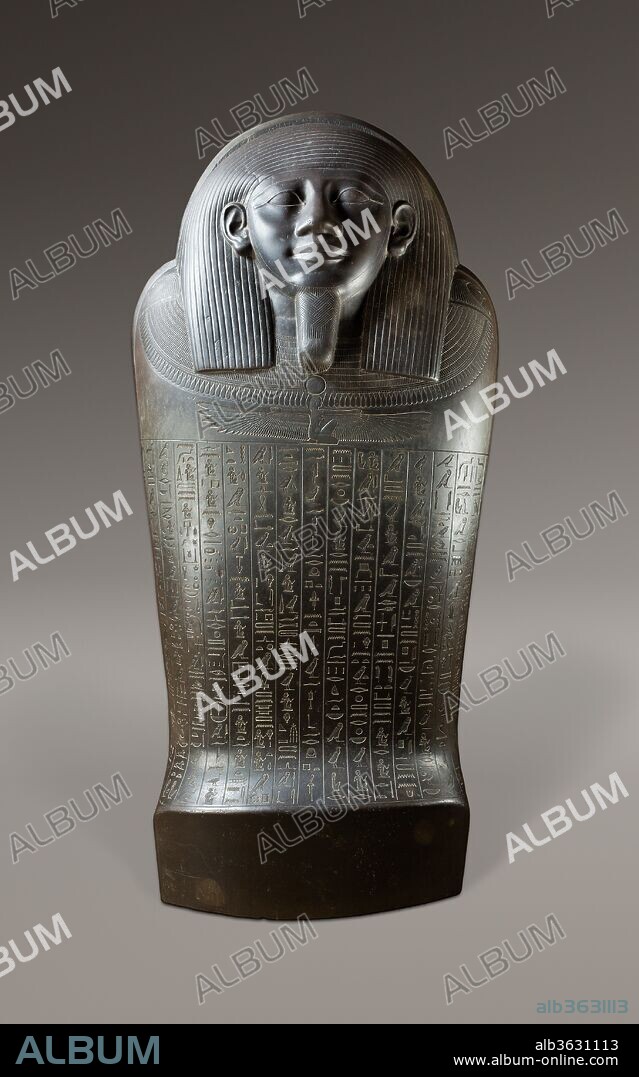alb3631113
Sarcophagus of Harkhebit

|
Zu einem anderen Lightbox hinzufügen |
|
Zu einem anderen Lightbox hinzufügen |



Haben Sie bereits ein Konto? Anmelden
Sie haben kein Konto? Registrieren
Dieses Bild kaufen

Titel:
Sarcophagus of Harkhebit
Untertitel:
Siehe automatische Übersetzung
Sarcophagus of Harkhebit. Dimensions: H. 256.5 (101 in); w. 127 (50 in) at shoulders; th. (of lid and base together) 132.1 cm (52 in). Dynasty: Dynasty 26. Date: 595-526 BC.
Horkhebit was a "Royal Seal Bearer, Sole Companion, Chief Priest of the Shrines of Upper and Lower Egypt, and Overseer of the Cabinet" in early Dynasty 26. His tomb was a great shaft over sixty feet deep sunk into the desert and solid limestone bedrock in the Late Period cemetery that covers most of the area east of the Djoser complex at Saqqara. In a huge plain chamber at the bottom of the shaft, a rectangular rock core was left standing and hollowed out to house this anthropoid sarcophagus. When the tomb was excavated by the Egyptian government in 1902, the sarcophagus contained the remains of a badly decomposed gilded cedar coffin, and a mummy that wore a mask of gilded silver, gold finger and toe stalls, and numerous small amulets. Other canopic and shabti equipment accompanied the burial. The finds went to the Egyptian Museum, Cairo, while this sarcophagus was purchased from the Egyptian government by the Metropolitan Museum.
The sarcophagus is one of a group with plump, squarish broad faces, smooth unarticulated bodies, and slightly protruding feet that originate in the Memphite area and date, when their dates can be closely ascertained, to the time from the reign of Psamtik II (ca. 595-589 B.C.) through the reign of Amasis (570-526 BC). Several of them may have been produced by the same workshop; this one bears a strong resemblance to one in Leiden datable by his name to the reign of Amasis. Technically the sarcophagus is one of the masterpieces of late Egyptian hard-stone carving. The interiors of the extraordinarily rendered sunk-relief hieroglyphs and figures were left rough and may have been intended to be painted, perhaps in green. The long text on the lid comes from the Book of the Dead.
Technik/Material:
Greywacke
Zeitraum:
Late Period, Saite
Museum:
Metropolitan Museum of Art, New York, USA
Bildnachweis:
Album / Metropolitan Museum of Art, NY
Freigaben (Releases):
Model: Nein - Eigentum: Nein
Rechtefragen?
Rechtefragen?
Bildgröße:
2746 x 4400 px | 34.6 MB
Druckgröße:
23.2 x 37.3 cm | 9.2 x 14.7 in (300 dpi)
 Pinterest
Pinterest Twitter
Twitter Facebook
Facebook Link kopieren
Link kopieren Email
Email
